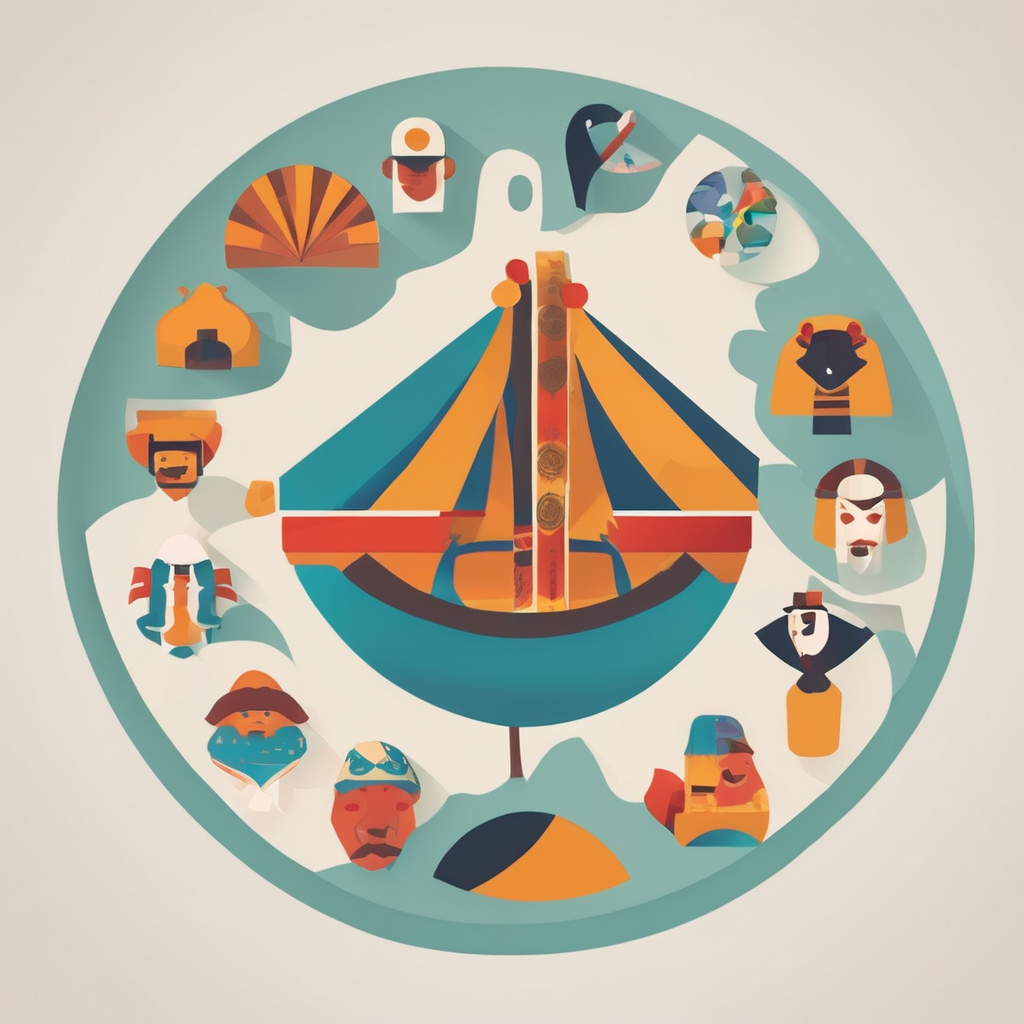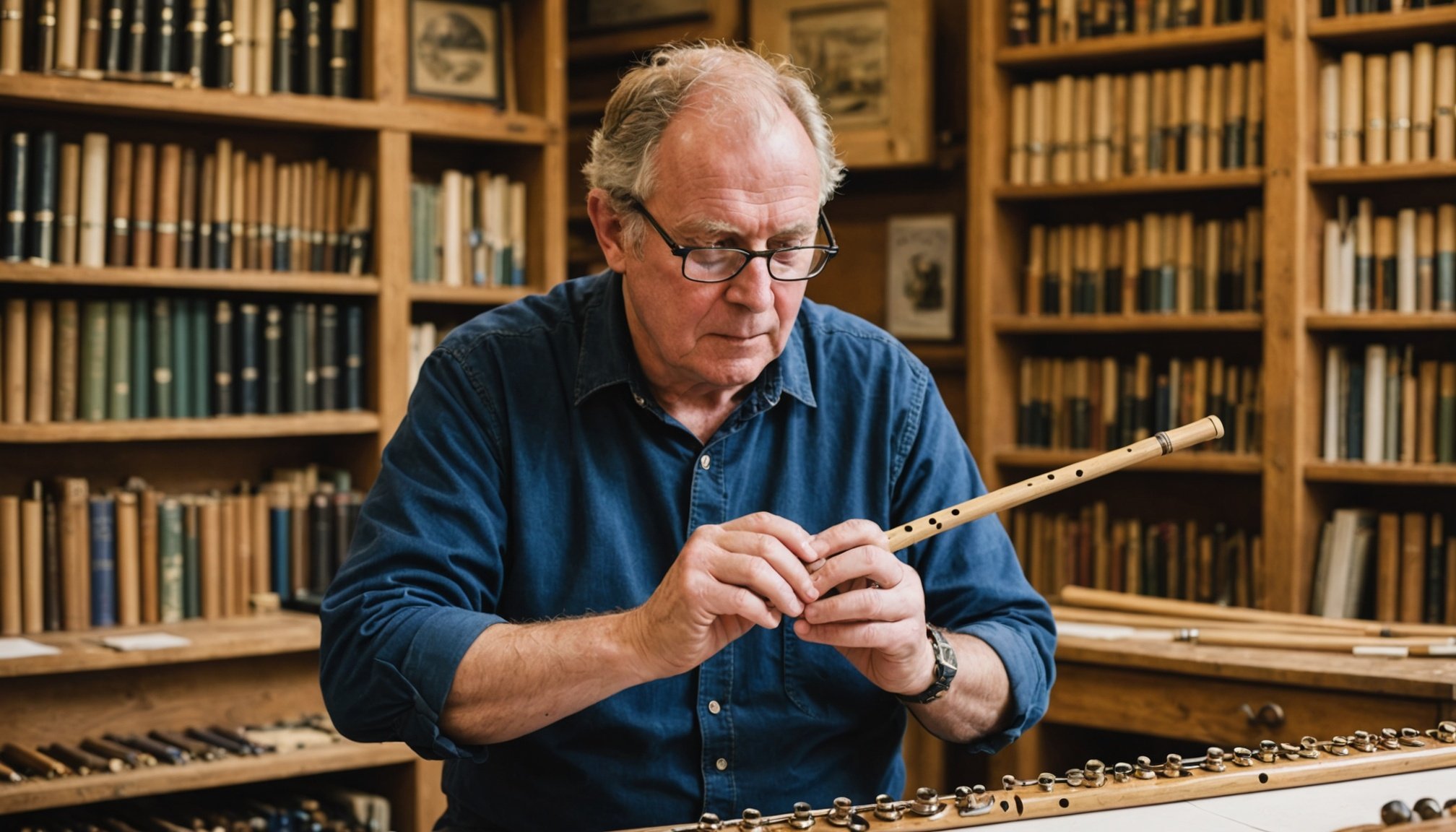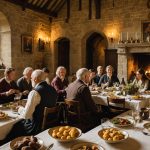Overview of British Flute-Making Workshops
British flute-making has gained popularity as a unique cultural experience, offering tourists an opportunity for hands-on learning. These interactive workshops present an engaging introduction to the intricate art of crafting flutes. Tourists not only learn about the craftsmanship but also immerse themselves in the cultural experiences that accompany this traditional art form.
Understanding the cultural significance behind flute-making is important. In Britain, the creation of flutes is steeped in history, reflecting the region’s rich musical heritage. Participants gain insights into how these instruments have been crafted over the centuries, along with their impact on British music and culture.
Also to read : Unmissable concerts in the uk and ireland for 2025
These workshops are designed primarily for tourists and craft enthusiasts. Whether you’re a seasoned musician or a curious traveller, the hands-on approach allows participants to connect with the tourist activities available. The opportunity to create something tangible enhances the tourist’s experience, making it memorable and educational.
Engaging in these workshops not only broadens tourists’ cultural horizons but also contributes to sustaining local artistic traditions, ensuring the survival of this skilled artistry for future generations.
This might interest you : Explore the Top UK Locations to Discover Ancient Roman Architecture on Guided Tours
Popular Workshop Locations
For those interested in flute-making, workshop destinations around the world offer unique cultural experiences and expert guidance. Whether in bustling urban centres or the tranquil countryside, there are numerous flute-making locations to explore.
Major Cities Offering Workshops
In cities like London, Edinburgh, and Birmingham, flute-making enthusiasts can immerse themselves in vibrant cultural settings. London workshops benefit from a rich musical heritage, providing access to top craftsmen and materials. Edinburgh’s workshops offer an artistic flair coupled with traditional methods, creating a unique learning environment. In Birmingham, participants have opportunities to engage with innovative techniques and contemporary designs. Each city possesses its own charm, making it a compelling workshop destination.
Rural vs Urban Experiences
Choosing between rural and urban workshops depends on personal preference and the desired experience. Rural workshops often promise a more immersive experience, surrounded by nature’s serenity, which can inspire creativity and focus. These locations highlight traditional crafts and techniques passed down through generations. In contrast, urban settings provide access to modern facilities and a dynamic cultural landscape, ensuring participants stay connected to the latest trends and innovations in flute-making. Each setting has its benefits, offering unique aspects and opportunities to enhance skills and knowledge.
History and Tradition of Flute-Making
Flute-making in Britain boasts a rich cultural heritage, dating back centuries. This artistry intertwines with the country’s musical evolution, defining a unique legacy. Originally, traditional craftsmanship saw flutes carved manually from wood, bone, or even stone. Such materials not only influenced tonal quality but also demonstrated the maker’s skill in working with diverse resources.
As time progressed, the evolution of materials and techniques brought about significant changes in the craft. By the late 19th century, metal flutes emerged, offering greater durability and consistency. Industrial advancements allowed precision in the bore and design, further refining the instrument’s sound. These innovations not only enhanced playability but also expanded the flute’s repertoire.
Preserving traditional craftsmanship in flute-making remains crucial in today’s fast-paced world. It ensures that the original techniques and skills are not overshadowed by modern manufacturing. Such dedication keeps the artistry alive, allowing musicians to experience the depth and warmth only hand-crafted flutes can deliver. Besides, this preservation enriches the cultural tapestry, offering future generations insight into the historical significance of these beautiful instruments. Ultimately, it reflects a commitment to maintaining the resonance of the past amid contemporary influences.
What to Expect During a Workshop
Participating in a workshop can be an exciting and enriching experience, especially when diving into the fascinating world of flute-making. These workshops are meticulously structured to cater to various skill levels, from novices to seasoned crafters.
Workshop Structure
A typical workshop schedule is divided into several segments, with its duration often ranging from a few hours to several days. This period is packed with engaging workshop activities designed to immerse participants in the flute-making process. Attendees will indulge in hands-on crafting experiences, learning essential techniques such as measuring and carving, under the guidance of expert instructors.
Skill Levels and Prerequisites
Workshops are generally inclusive, offering options suitable for beginners, intermediates, and advanced participants. Most of these sessions do not require prior experience, making them ideal for those eager to explore a new hobby or craft. Beginners can rest assured that they will receive ample support and instruction throughout the workshop.
Tools and Materials Provided
Participants are typically provided with all the necessary tools and materials. Common tools include chisels, saws, and sandpaper, while crafting materials comprise various types of wood and decorative elements. The materials used in flute-making are specifically chosen to ensure both quality and ease of use, contributing to a rewarding participant experience.
Pricing and Booking Information
Understanding the cost of participation is crucial for planning your workshop experience. Workshop pricing can vary significantly depending on the length and content. Typical costs can range from a nominal fee to several hundred dollars for an intensive session. Many organisers offer early bird discounts, encouraging participants to book well in advance. Additionally, group rates provide a more economical option for those attending with colleagues or friends, making it more accessible to everyone interested.
Booking your spot is straightforward, with several platforms available to streamline the process. Most workshops can be reserved online through dedicated booking platforms, which detail the workshop specifics and costs involved. Alternatively, direct contact information is often provided for further inquiries. This ensures you can secure your spot efficiently while gathering all necessary information.
Taking advantage of these options can significantly reduce costs and ensure a smoother booking experience. Remember, planning ahead not only saves money but also guarantees participation in these valuable learning opportunities.
Travel Tips for Tourists
Travelling to a new country can be both exciting and overwhelming. Whether you’re seeking travel advice or looking for tourist tips while visiting Britain, being well-prepared ensures a smoother journey.
Best Time to Visit
Britain offers a host of experiences year-round, so timing your visit is crucial. Spring and autumn are generally the best times, as the weather is mild and landscapes are particularly picturesque. Planning to attend workshops during these seasons could also mean fewer tourist crowds and more personalised experiences. Additionally, numerous festivals take place during these times, such as the Bath Festival or the Hay Festival, enhancing cultural enjoyment.
Accommodations and Transportation
When staying near workshop locations, it’s wise to book well in advance. Cities like London, Edinburgh, and Manchester provide a variety of accommodations, ranging from boutique hotels to budget-friendly hostels. As for public transportation, the rail network is highly efficient, connecting major cities with frequent services. Consider purchasing an Oyster card in London for convenience and reduced fares.
Local Attractions
Combine workshops with sightseeing to make the most of your visit. Explore the British Museum in London or the historic streets of York. Incorporating local attractions into your itinerary not only enriches your cultural experience but also makes your trip memorable. Balancing learning and leisure is key to an unforgettable journey in Britain.
Testimonials and Participant Experiences
When considering a workshop, hearing directly from attendees can provide valuable insight. Participant feedback often highlights the fulfilling journey of diving into flute-making. Many share that this hands-on experience not only enhances their skills but also ties them closer to cultural exploration. By directly crafting these traditional instruments, participants have conveyed a deeper appreciation for cultural heritage.
One participant noted the transformative power of the workshop: “Creating my own flute was a brilliant dive into history. I left with not just a musical instrument, but a personal story woven into each note.” Such personal experiences echo the sentiment that these sessions aren’t just about crafting, but also about connecting with tradition on a personal level.
Aside from verbal accounts, visual content, like images or videos, paints a vivid picture of the workshop’s dynamic environment. A glimpse into the vibrant settings, skilled artisanship, and intricate instruments produced can encapsulate the essence of these gatherings. This encourages others to immerse themselves and consider their potential personal impact.
These workshop reviews, filled with personal stories and vivid imagery, encourage prospective participants to explore the blend of craftsmanship and culture for themselves.











